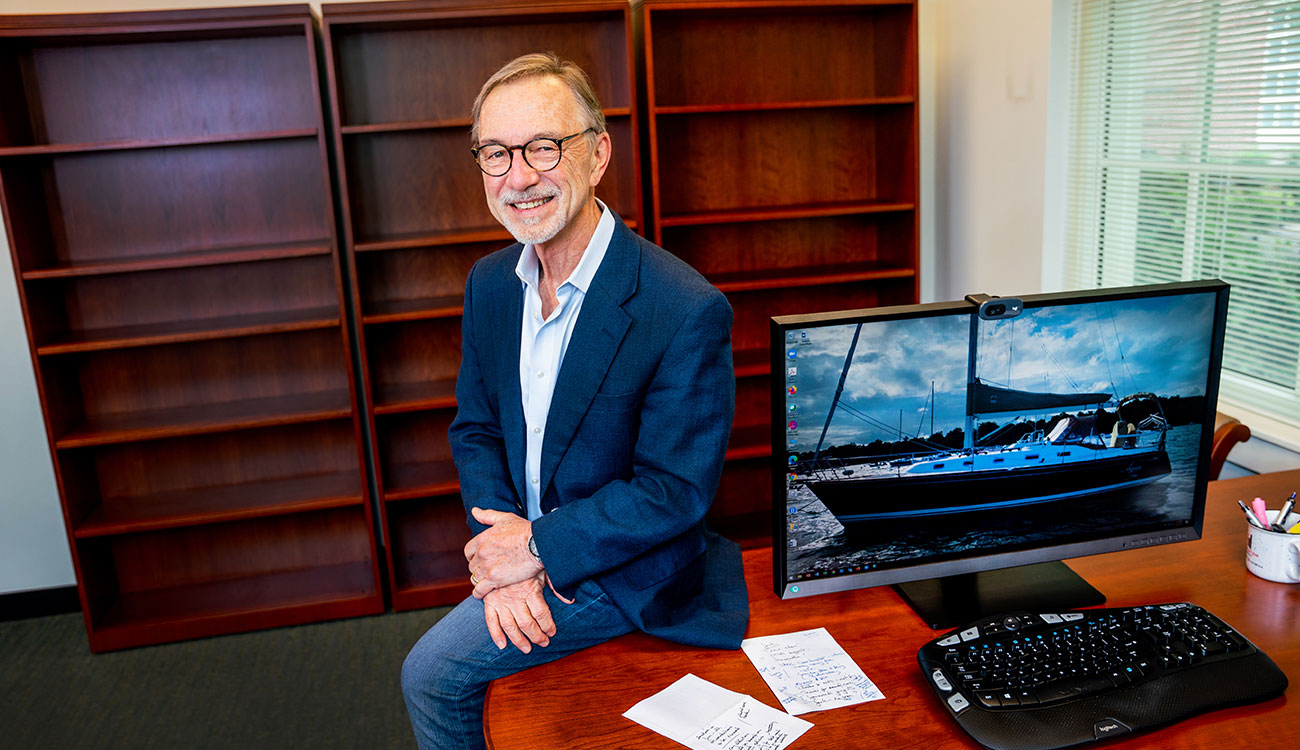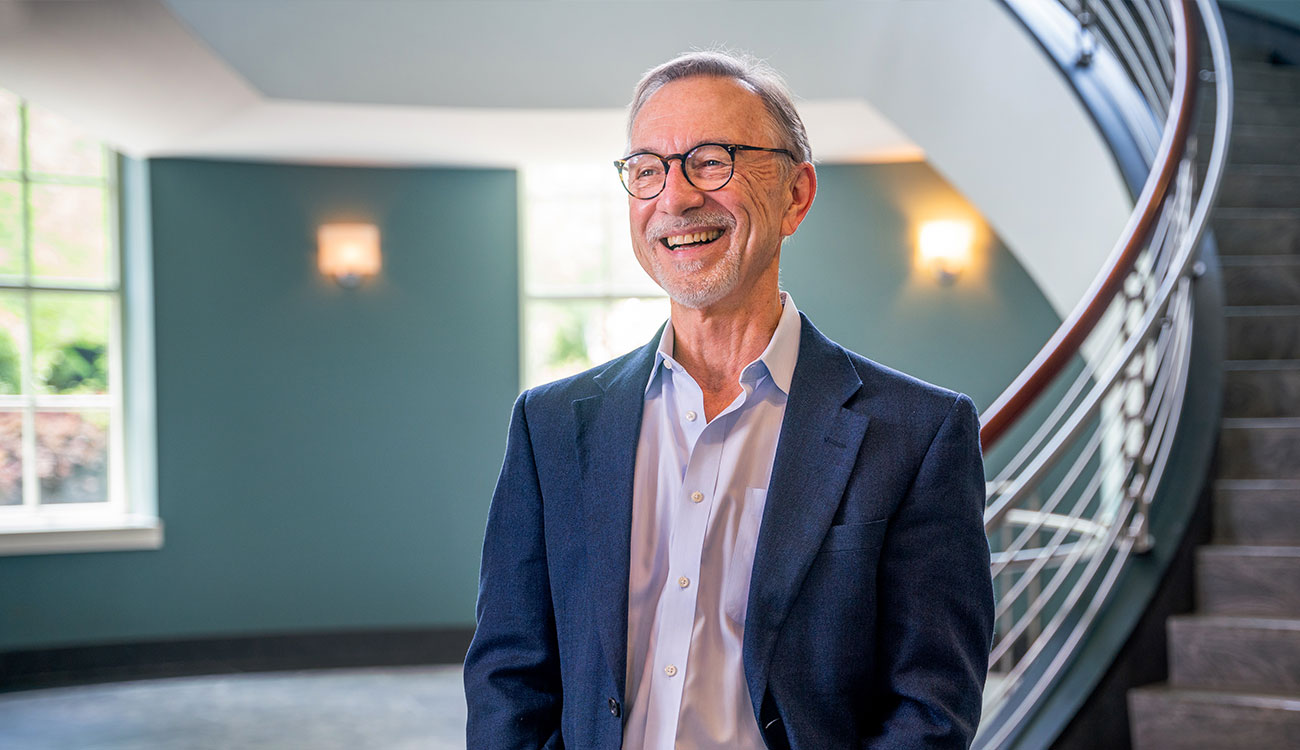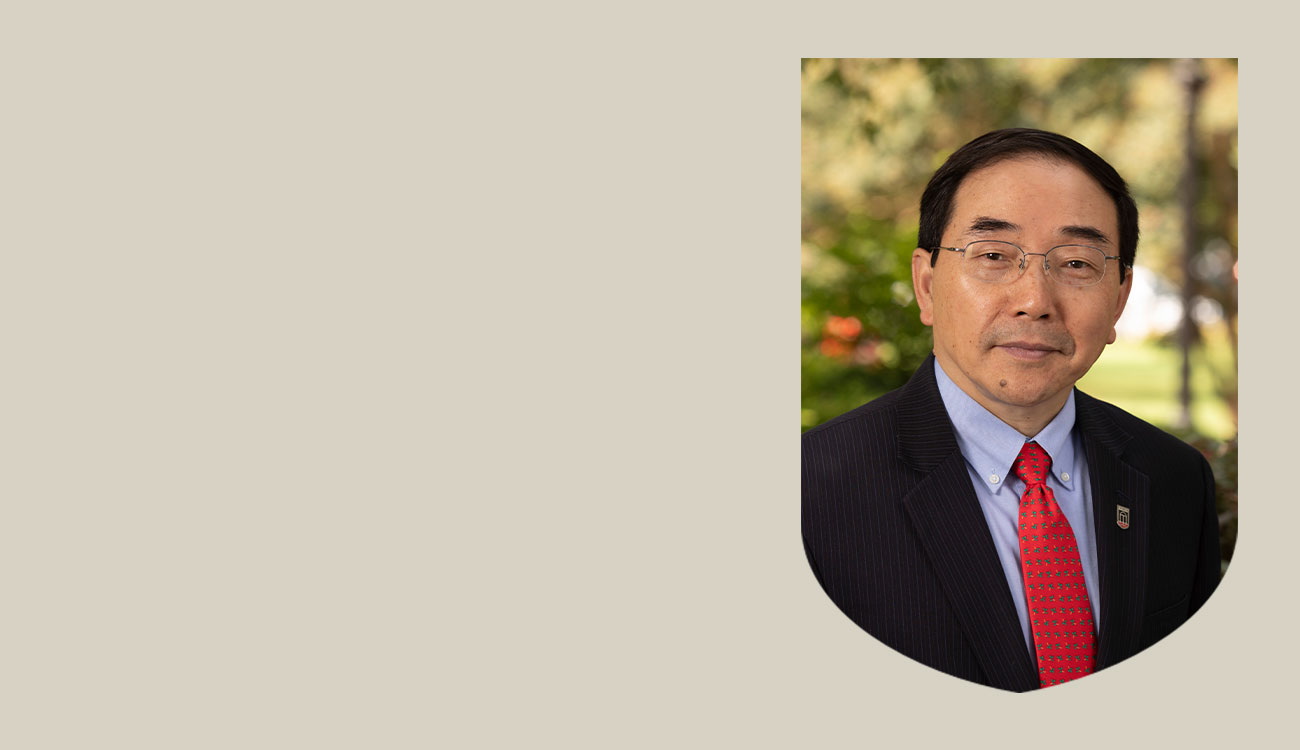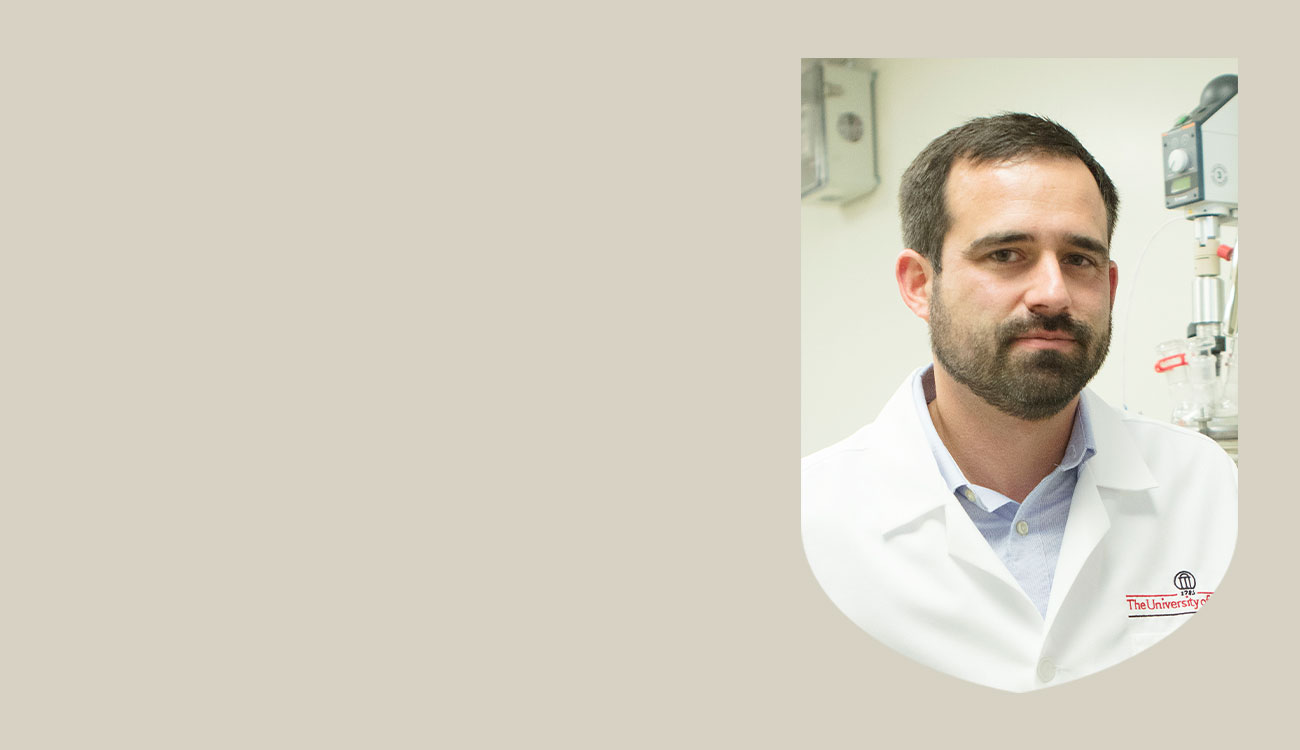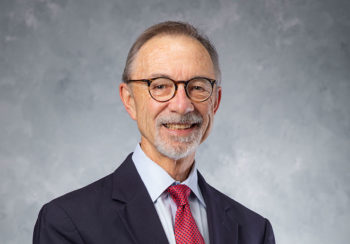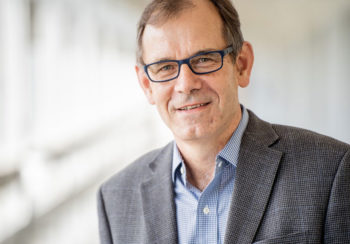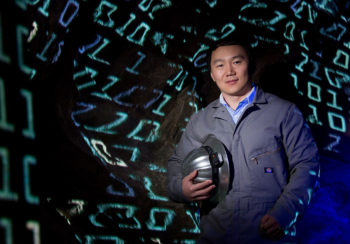David Lee, in the words of his colleagues
Vision + hard work = results
UGA’s research enterprise certainly has transformed over the course of Lee’s tenure, particularly in the last several years. By virtually any metric, the university has made significant strides, and while Lee is quick to note that it “takes a village to make such progress,” his contributions in many areas have been notable.
Take faculty recruitment: Lee led the recruitment of the last nine GRA Eminent Scholars to come to UGA, including Robin Buell and Anamantha Kanthasamy, who will join the university this fall. Each individual was recruited strategically to bolster an existing or aspirational research strength, often as part of a targeted cluster hire in a specific area.
One example is the 2015 recruitment of GRA Eminent Scholar Ted Ross and the plan for Ross to establish a vaccine center once he arrived.
“We had to work pretty closely to sell this idea of a new center,” said Ross, who now directs the Center for Vaccines and Immunology in the College of Veterinary Medicine. “David had to put a lot of his own clout on the line to convince others that the center would pay for itself. Because not only did we have to build the center, but we had to come up with the funds to renovate the college’s space. That was instrumental, and David was the one who led the effort.”
Fast forward four years from Ross’ arrival to September 2019, when the NIH awarded UGA a seven-year contract worth up to $130 million to establish a multi-institutional center to develop a universal flu vaccine. That was followed last month by another award from NIH, this time to Professor Mark Tompkins, a colleague in CVM, as principal investigator. This contract, again for seven years and up to almost $92 million, established a second multi-site center to study the ecology of flu and help prepare for future pandemics. Suddenly, UGA’s investments in infectious disease research are looking very smart indeed.
“Building a capacity like this is not something that happens overnight,” Tompkins said. “There was a concerted effort at the college level and certainly at the university level, and David Lee has been very supportive for many years of the growth of the infectious disease research footprint at UGA.”
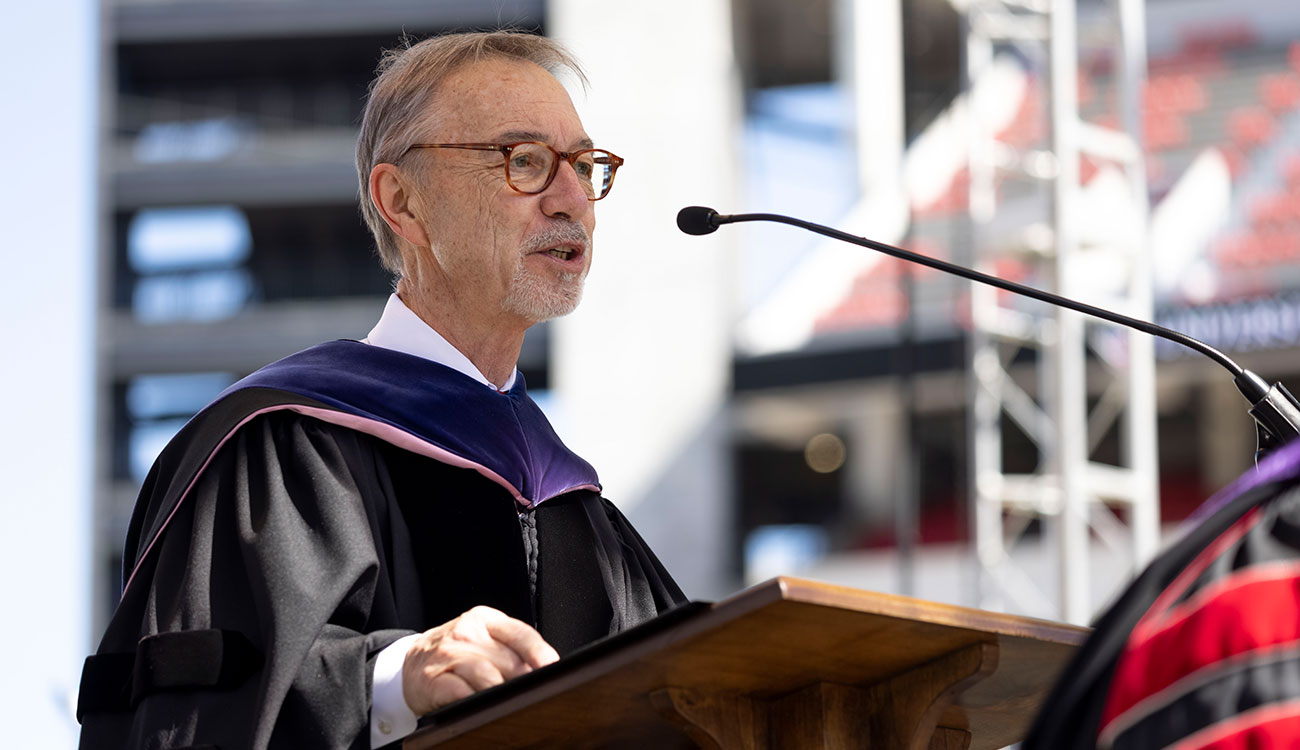
While nine-figure research awards may grab a lot of attention, Lee also worked to support faculty outside of STEM fields, including through the Willson Center for Humanities and Arts. When he arrived, the Willson Center was housed in the basement of the Psychology Building, near the loading dock—not exactly the kind of physical environment to inspire the human spirit. Through the generosity of the Willson family, the Office of the President and the Office of Research, the center relocated to a charming two-story house on Lumpkin Street that now is a center of grant success and intellectual community for the humanities and arts.
“I used to look out at the loading bay and think, ‘We can do better than this’—and, with David’s encouragement, we did,” said Nicholas Allen, Willson Center director and holder of an endowed Professorship in the Humanities, whom Lee helped recruit to UGA in 2011. “I often think of that when I sit in the new Willson Center, and we have this beautiful building where people come and they can see that humanities and the arts are valued at the University of Georgia.”
Another example of Lee’s foresight is the revitalization of critical research units. The Savannah River Ecology Laboratory and UGA Marine Institute—both with histories stretching back to the mid-20th century—faced existential crises during Lee’s tenure. In the late 2000s, SREL was staring down the abrupt loss of millions of dollars in Department of Energy annual funding, prompting many to fear for its survival. A decade later UGAMI, located on Sapelo Island off the Georgia coast, was hit hard by Hurricane Irma, sustaining major damage to a physical infrastructure that had been deteriorating for decades.
Today both units are back on the path to growth. UGAMI’s facilities have undergone major renovations since the hurricane flooding, while SREL’s co-located presence is likely one of the big reasons a team that includes UGA was recently awarded the management contract for the Savannah River National Lab.
Carl Bergmann, associate vice president for research overseeing facilities and infrastructure, was centrally involved in both projects. He recalled making multiple trips with Lee to Washington to talk with DOE officials about how to turn SREL around.
“When David and I first started going there, we would get shoved into this room down in the basement, like being in the middle of a prison,” Bergmann said. “By six months in, we knew we were on the right path because all of a sudden we were in a meeting room on the sixth floor with a view of the Mall. We looked at one another and said, ‘I guess we’re doing all right.’”
“He’s been incredibly supportive of what we’re doing down at Sapelo,” said UGAMI Director Merryl Alber, adding that Lee makes a point to be on the island for periodic National Science Foundation site visits related to Georgia Coastal Ecosystems, the NSF Long-Term Ecological Research project for which Alber is principal investigator and one of the major research projects operating at UGAMI.
“David has helped that LTER really be a success, and that’s something that’s not a given,” Alber said. “I’ve seen colleagues in other universities who haven’t gotten as much support, and it’s been harder for them.”
“I’m proud of the work we’ve done to turn around SREL and UGAMI, both of which were in precarious positions,” Lee said. “With the win at Savannah River National Lab, we have an opportunity to leverage our success with SREL, the expansion of the College of Engineering and other assets in order to grow our Department of Energy portfolio, and we’ve also taken steps to position UGA to be more successful with the Department of Defense. That could be significant.”
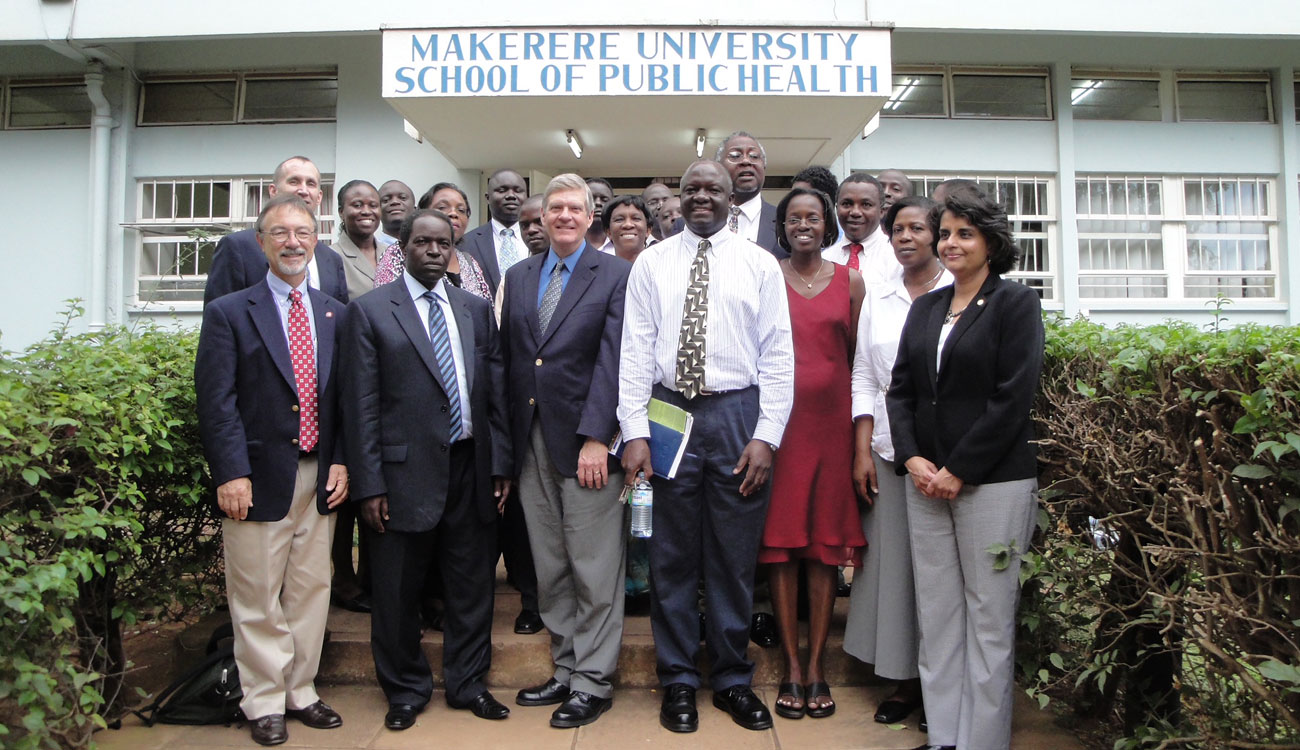
Tuning up the innovation engine
Lee has also helped the university grow the societal and economic impacts of UGA research activities for the broad community UGA serves. In the early 2010s, Lee was the driving force behind Thinc. Week, which for several years drew together entrepreneurs—especially students—on campus with likeminded innovators in the community. Next he oversaw the integration of the university’s two technology-transfer units—the Technology Commercialization Office, which handled intellectual property licensing, and the Georgia BioBusiness Center, which supported startup companies—into a single front door, Innovation Gateway.
Later, in late 2017, he was appointed by Morehead to co-chair a task force that led to the creation of UGA’s Innovation District, a university-wide initiative intended to support and catalyze innovation and entrepreneurship among faculty, students, staff and the wider UGA and Athens community, as well as strengthen the university’s connections to industry partners.
“David’s leadership has impacted our innovation and entrepreneurship ecosystem in lots of different ways,” said Derek Eberhart, associate vice president for research and executive director of Innovation Gateway. “He brought together stakeholders and said we should think strategically about the innovation function and how we might craft it. He was the one who really helped kick off that conversation at a senior administration retreat, and now the Innovation District will be part of his legacy.”
Since its creation, Kyle Tschepikow, special assistant to the president and director for strategy and innovation, has served with Lee as co-lead of the Innovation District launch team. The two have traveled to other universities to tour similar programs and spent countless hours, in group meetings and smaller discussions, talking through UGA’s needs in the innovation space.
“What I’m doing is figuring out how to amplify David’s world,” said Tschepikow. “Things that happen in labs and research spaces across our campus are turned into products, into solutions, that make a significant impact on the lives of people across the state, and David helped me to see that in a way I never did before. He’s been a great champion for that part of the university’s land-grant mission.”
By helping to shape that innovation ecosystem, as well as by recruiting many of the researchers who play such important roles in it, Lee has also strengthened the vital relationship between UGA and the Georgia Research Alliance. GRA was itself founded in 1990 as a public-private partnership with the mission of expanding university research and entrepreneurship, fueling a technology-based economy. According to GRA President Susan Shows, Lee has played a big part in reaching that goal.
“David is living proof of how important that VPR position is,” said Shows, who served on the search committee that brought Lee to Athens. “He has an exceptional eye for research talent.
“And, thinking strategically about those researchers’ infrastructure needs, he’s helped GRA decide where we can place equipment that would benefit a wide range of faculty.”
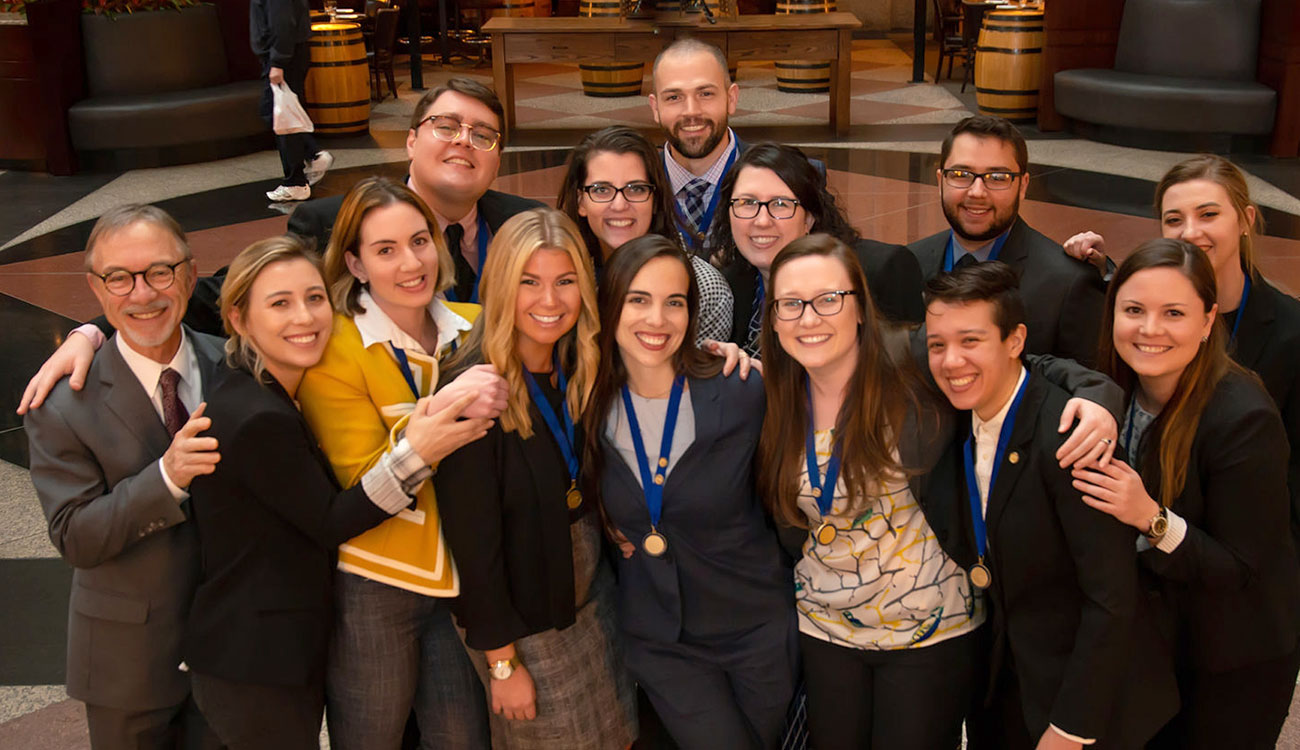
Skills of a leader
No one lasts 16 years as a vice president at a major university without bringing a wide range of skills to the table. In managing one of UGA’s largest and most complex support units, Lee has demonstrated strategic vision, financial acumen, trust in his leadership team, a genuine and wide-ranging scholarly curiosity—and a refreshing dose of humility, say his colleagues.
“He has very good instincts about what’s going to work and what’s not going to work,” said Shelley Hooks, associate vice president for research and a faculty member in the College of Pharmacy. “At the same time, he’s also willing to let us try something new, to take a little bit of a chance and experiment with new ideas.”
Hooks is one of a team of senior research leaders under Lee’s direction in the Office of Research who manage research safety, research compliance, sponsored projects, technology transfer, startup incubator programming, research communications, postdoctoral affairs, internal grants and awards, and more—with all these components led by research administrators Lee brought on board.
That operation, several faculty and administrators said, is a big reason why UGA has experienced such research success.
“It’s a good machine that runs smoothly,” said S. Jack Hu, senior vice president for academic affairs and provost. “Every university has challenges in research administration, but overall I think our various offices are operating at a high level.”
“He put a lot of effort into making sure the support services and compliance and everything else actually works,” said Nancy Manley, Distinguished Research Professor and department head for genetics, who chairs a faculty advisory group for the Office of Research. “And it works, to a large extent, in the background and in a customer service-oriented way. That’s going to have a long-lasting impact.”
Along with a willingness to patiently listen and gather many perspectives before making a decision, perhaps Lee’s most-mentioned trait is the ethos of servant leadership he’s brought to the Office of Research. Every situation, every challenge, every opportunity is viewed through the lens of what provides the best support to the broadest swath of investigators and students. It’s a mindset he’s instilled in the people who work for him.
“Whenever he’s framing an issue, he always frames it by focusing on the faculty and lab members: ‘We’re here to serve them, and how can we serve them well?’” said Jill Tincher, executive director of Sponsored Projects Administration. “That approach is really commendable.”
“In David’s mind, we are here to serve the faculty, the students and the institution—to make things easier for them,” said Jessica Orbock, senior legal adviser in the Office of Research. “David wants us to deliver top-notch service. We’ve all taken that away from working with him, and it is woven into the culture of the office.”
And it goes beyond faculty. Part of his legacy, UGA’s president emphasized, should be his commitment to undergraduate education. Morehead said that Lee played a central role in the continued development of the Center for Undergraduate Research Opportunities and its annual symposium, at which students display posters and give oral presentations explaining their own research.
“David was always there at the CURO Symposium, always part of it, always encouraging undergraduate research activities,” Morehead said. “He said it was that kind of activity for him as an undergraduate that he credits with the development of his career, so he was committed to making sure UGA undergraduates had the same opportunities that he enjoyed.”
Indeed, a dedication to service to the entire university is the first thing Lee mentions when talking about the qualifications of an effective VPR.
“You’ve got to want to make a difference. I can honestly say that most of the 16 years on this job I have woken up every morning wondering what I can do to help advance the institution,” Lee said. “Mostly I’ll miss the people—the many faculty and staff I work with, and my administrator peers as well. Also, I taught one of the First-Year Odyssey classes for many years and bonded with students from each class. I’ll miss that, too.
“I have literally seen research blossom across campus. We have so many faculty and students doing so many interesting and important things that I hate to single any out,” he said. “Folks outside the university tell me that UGA’s reputation as a research institution has grown rather dramatically.
“If that’s so, it’s something we can all be proud of.”
